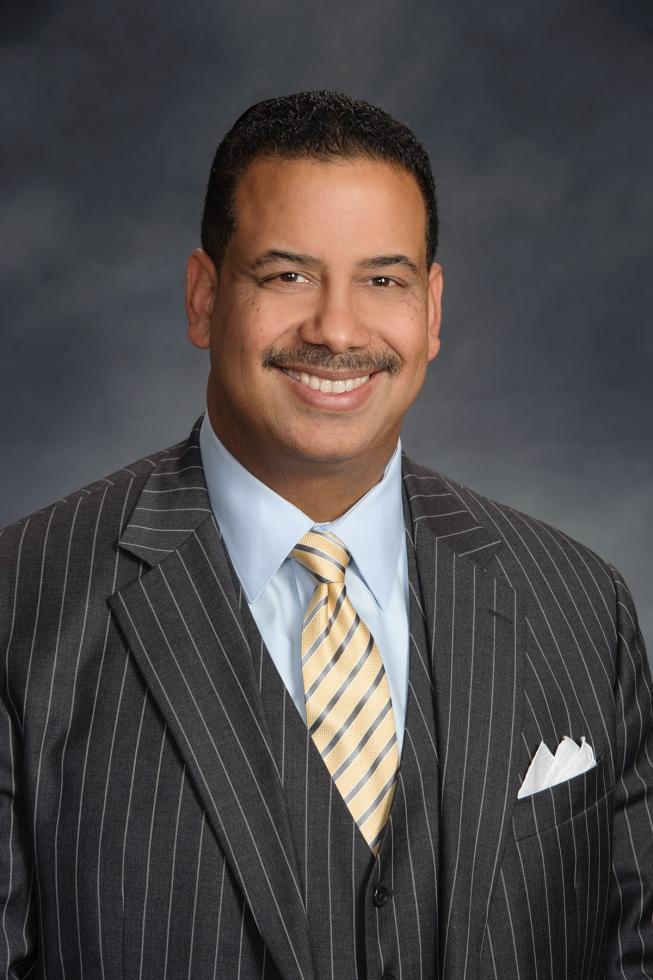Scott Syphax is the founder and board chair of Nehemiah Emerging
Leaders Program. (Photo courtesy of Scott Syphax)

The letter decried “the violence and murder of Black and Brown
people by the police, as well as the systemic racism of a
criminal justice system that has few rules and even fewer
consequences for those that abuse their authority.”
The letter was signed by the fellows, senior fellows, staff and
board of directors of NELP, a 10-month professional
development program that selects promising, culturally diverse
leaders in the public and private sectors — including business,
nonprofit, education, politics and government — and rigorously
trains them with the leadership skills needed to create positive
change and empower others in their communities.
Comstock’s spoke to Scott Syphax, the founder and board chair of
NELP and founder of Syphax Strategic Solutions, about NELP’s
mission and its role in the future of the Capital Region.
What is the mission of NELP?
NELP is considered by many as the Delta Force of emerging
leadership within the Sacramento region. The program selects the
best and brightest of the region and puts them through the
hardest non-graduate graduate program that they could likely ever
experience. We take already exceptional people from all walks of
life and put them through our cross-functional program to augment
their (leadership) skills so they can act as force-multiplying
change agents in both professional and civic environments.
In the 11 years of the program, our nearly 200 fellows … have
served on over 300 boards and commissions throughout the region.
(The training they receive) gives them a common vocabulary and
skill set that allows them to work across professional,
ethnic-origin, religious, orientation and political affiliations
to find solutions to the tough challenges our region faces and at
same time excel professionally.
NELP’s letter said that the program “remains
committed to changing flaws in the systems of our community.”
What steps is NELP taking to fight for social
justice?
Our fellows decided to create task forces (on policy and law
reform, and youth and community program development) to look at
all of the laws on the books that frankly have delivered poor
results — on the basis of bias and lack of fairness — and propose
solutions. Our fellows include everyone from attorneys to
epidemiologists, elected officials, urban planners, engineers.
We’re leaning into that diversity of expertise (to address these
issues). They’re continuing to reach out to underrepresented
communities to learn what their needs are and partner with them
to come up with policy changes they can advance to bring positive
systemic changes to our region.
We’ve also got more work to do to expand our own curriculum and
program offerings within NELP to bring a (bigger) social justice
component. We’re creating a new program to empower youth in
underrepresented communities who have been leading protests and
need their voices to be heard. Recently, one of our alumni,
Kenneth Johnston (founder of TV and film production company KJ2
Productions) put together a moderated panel
about the protests with another alum, Flojaune Cofer (an
epidemiologist who serves as the senior director of policy for
Public Health Advocates and is one of the leading spokespeople
for the recent protests in Sacramento).
Our fellows and alumni have made a commitment that they’re not
just going to sit back and continue to rise professionally. They
see the (events following the deaths of Breonna Taylor and George
Floyd) as a wake-up call that we have a lot of work to do — that
we need to continue having uncomfortable conversations and
changing laws and policies that have been unaddressed and
neglected for far too many years. They’re rolling up their
sleeves and getting busy.
How does NELP hope to achieve its goals?
We’re currently looking for CEOs and private-sector leaders and
companies who are willing to step up and be part of an initiative
to bring the training from NELP out into underserved communities,
to contribute resources and humanpower — not just manpower,
humanpower — to create positive change in these communities and
support new voices and perspectives.
Recommended For You

How Leaders Can Build True Inclusion
Adrienne S. Lawson, of UC Davis Health, talks about how leaders can promote workplace inclusion and justice
As the U.S. grapples with the COVID-19 pandemic, factors such as socioeconomic status, education, neighborhood and employment play a pivotal role in the fight against systemic racism and social injustice.

Photos: Volunteers Respond to Calls to Clean Up Sacramento Businesses
Volunteers help clean up around several businesses in downtown Sacramento that had been damaged during national protests over the weekend in response to the May 25 police killing of George Floyd, a black man in Minneapolis.

Want to Challenge Racial Inequality? Empower More Leaders of Color
While researchers and community leaders often highlight the dismal levels of racial diversity among boards, an even greater disparity often goes overlooked. Scarcely 10 percent of nonprofit executive directors are people of color.

If You Rebuild It
Serial entrepreneur Scott Syphax rises from the rubble
Scott Syphax is an unlikely person to garner a nickname like Dr. Doom. After all, the president and CEO of Sacramento-based Nehemiah Corp. of America is far too thoughtful and deliberate to be saddled with a sobriquet more in line with a snickering cartoon villain.



